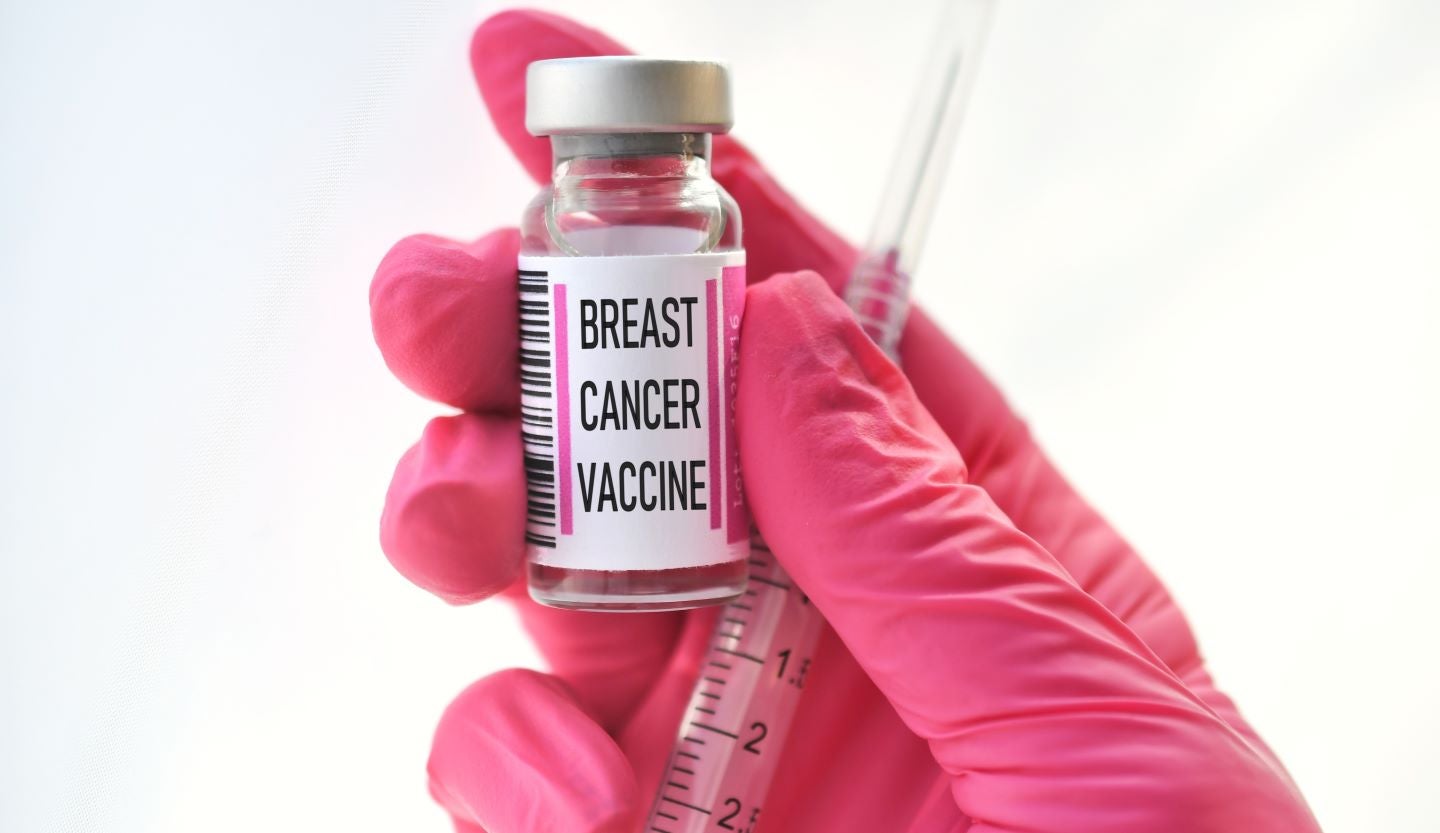
Anixa Biosciences and Cleveland Clinic in the US have reported positive data from the Phase I clinical trial of breast cancer vaccine.
Invented at Cleveland Clinic, Anixa obtained an exclusive global licence for the breast cancer vaccine technology.

Discover B2B Marketing That Performs
Combine business intelligence and editorial excellence to reach engaged professionals across 36 leading media platforms.
In the trial, patients who were curatively treated for triple-negative breast cancer (TNBC) were given three vaccine doses once every two weeks.
To assess the effect of the vaccine, the parties analysed immune-mediated indicators of T cell activation, IFNγ and IL-17.
According to the trial data from 16 subjects, most of the participants demonstrated to have ELISpot (T-cell) responses.
In 75% of the female subjects, antigen-specific IFNγ and/or IL-17 ELISpot responses were reported at all tested doses while ELISA antibody responses were seen at dose level two and higher.

US Tariffs are shifting - will you react or anticipate?
Don’t let policy changes catch you off guard. Stay proactive with real-time data and expert analysis.
By GlobalDataBy day 14 and 56, a substantial rise in IFNγ and IL-17, respectively, from baseline were also reported.
Dose level one was determined as the usable immunologic dose and the maximum tolerated dose in the trial.
Apart from injection site irritation, no notable side effects were reported in the trial.
Anixa Biosciences chairman and CEO Dr Amit Kumar said: “This vaccine is designed to direct the immune system to destroy TNBC cancer cells through a mechanism that has never previously been utilised for cancer vaccine development.
“We look forward to reviewing additional data as the trial continues to completion, and we are in the planning stages of the Phase II/III studies of this vaccine.
“Our goal is to initially evaluate the vaccine’s ability to prevent recurrence of cancer in survivors, and continue with extension studies to eventually determine its effectiveness in preventing the initial onset of TNBC.”
Anixa and Cleveland Clinic will also analyse further intermediate dose levels of the vaccine, as well as its safety and immunologic effects in two more patient cohorts.
The first cohort is currently assessing the vaccine along with Keytruda (pembrolizumab) in post-operative breast cancer patients with residual disease after receiving neoadjuvant chemo-immunotherapy.
The second cohort will evaluate the vaccine safety and immunologic effects in patients with BRCA1, BRCA2, or PALB2 mutation.



